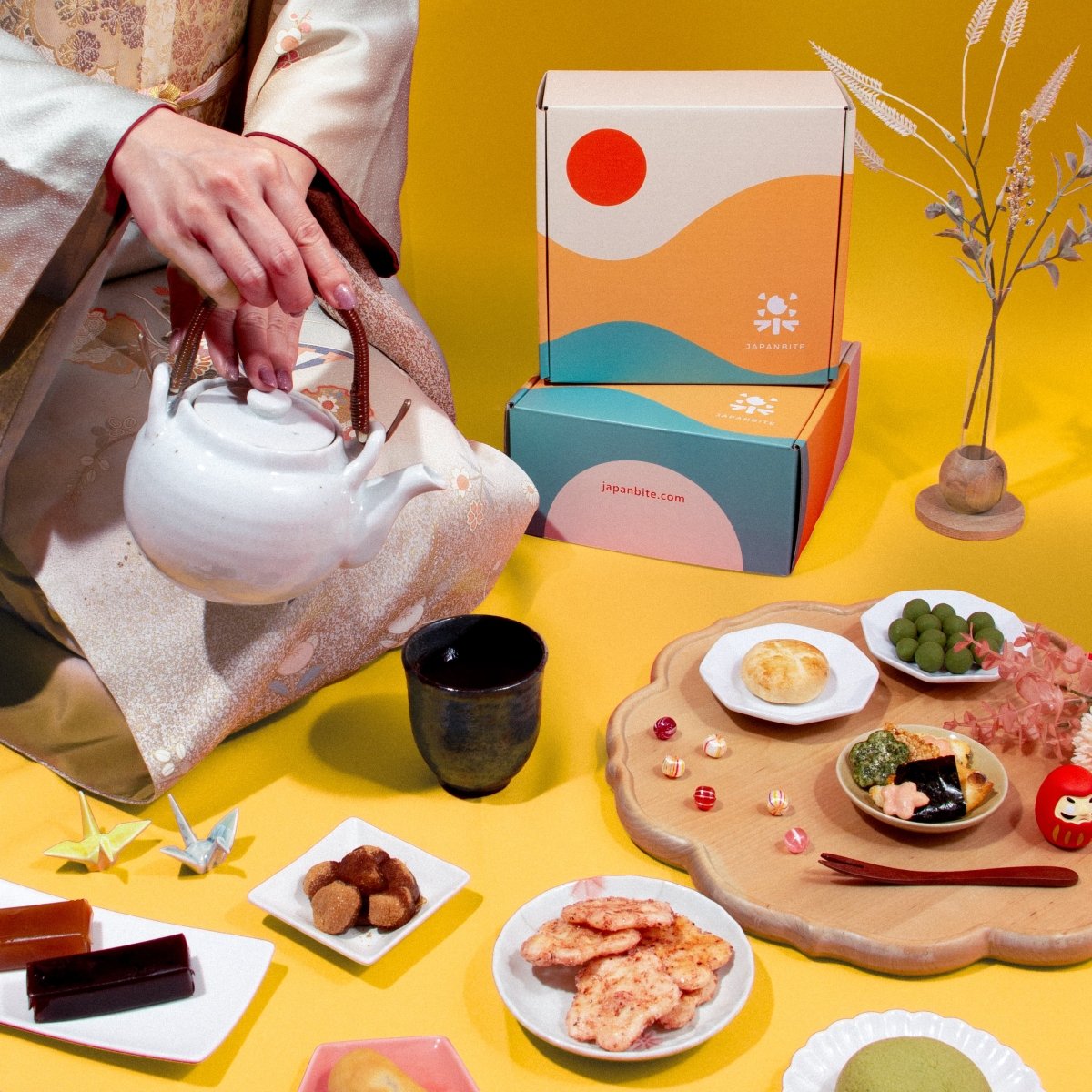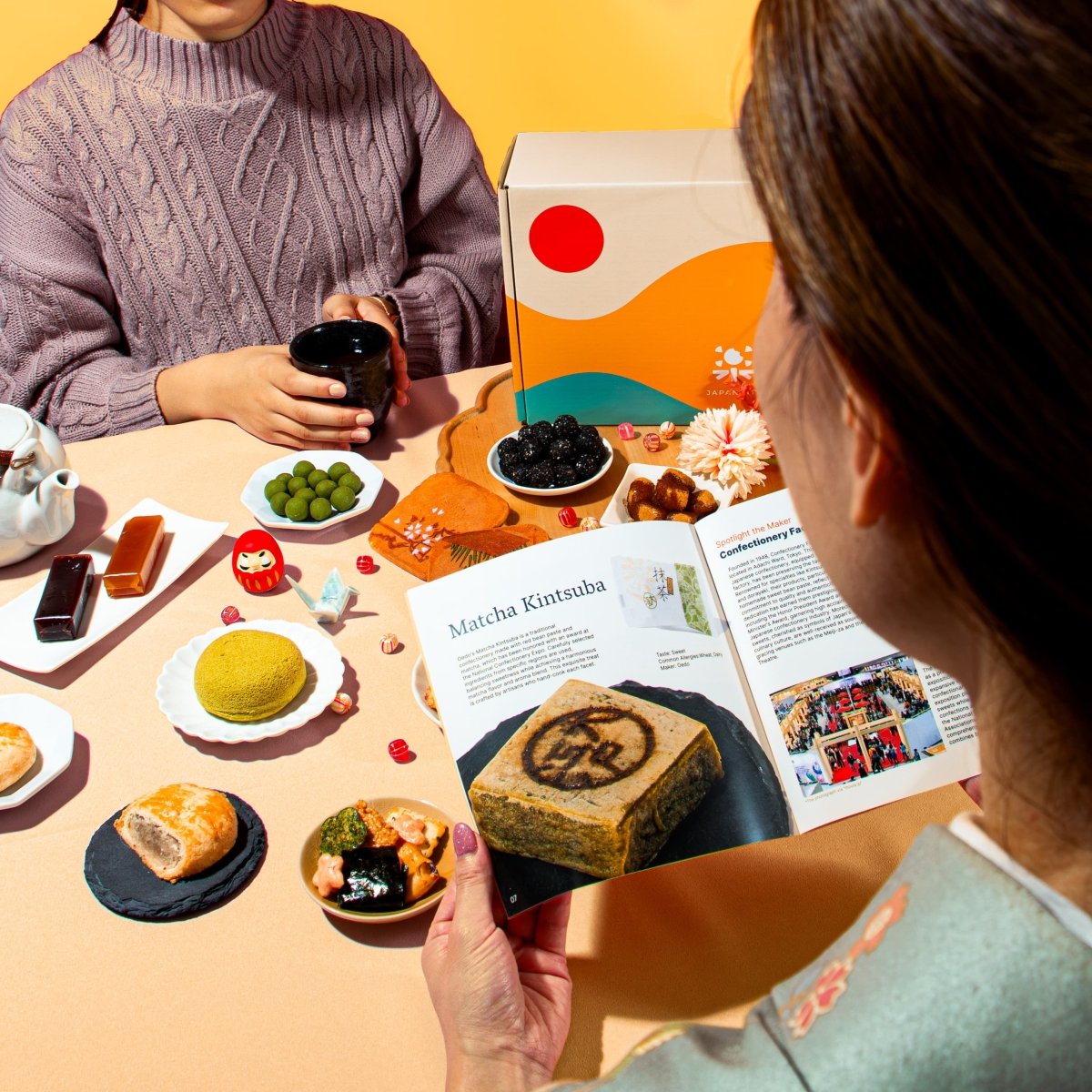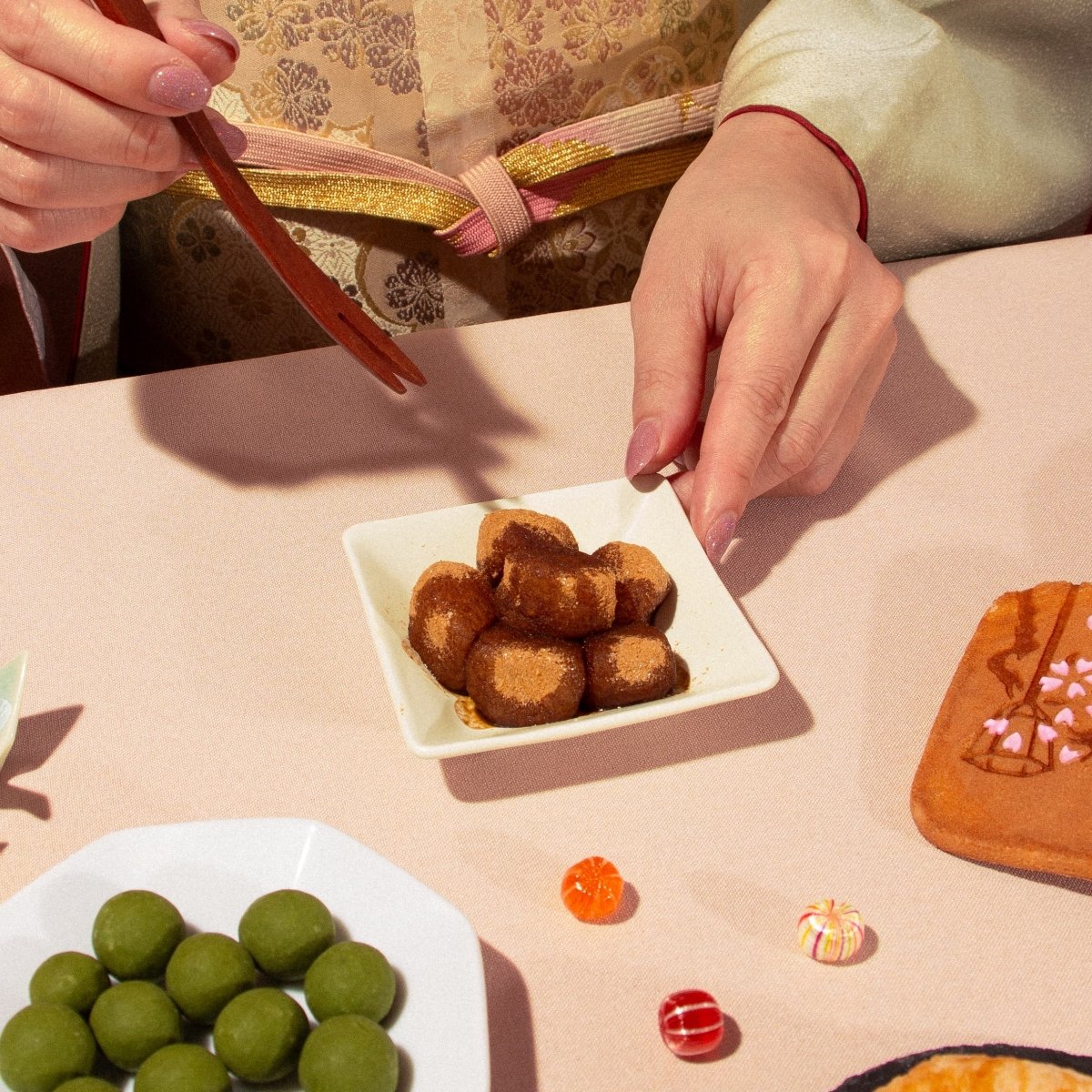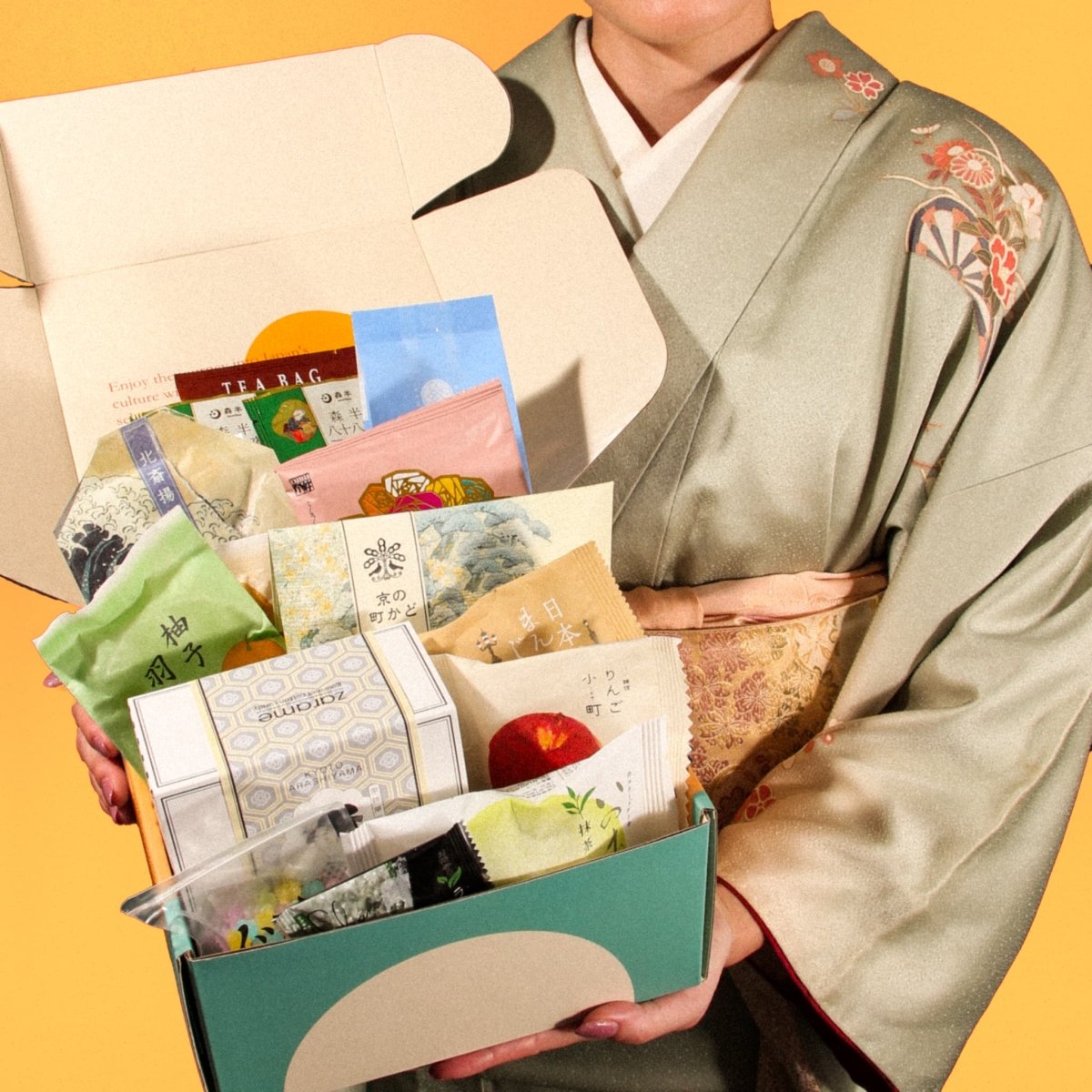Type of Mochi
Habutae Mochi
Habutae mochi is a Japanese confectionery made in Fukui Prefecture. It is made by steaming rice flour and kneading it with sugar and starch syrup. The name "Habutae mochi" comes from "habutae," a silk fabric characterized by its soft texture and elegant luster.

Sakura Mochi
Sakura mochi is a Japanese confectionery made from glutinous rice dough, red bean paste, and salted cherry leaves. The leaves of sakura mochi are made from salted cherry leaves called Oshima-zakura, which are edible and therefore safe to eat. Eating the sakura leaves together gives the mochi a more fragrant and flavorful taste.

Dumplings (Dango)
Dumplings are spherical or cylindrical shaped rice cakes made mainly of glutinous rice, usually served on a skewer. They are generally flavored with soybean flour, soy sauce, anko (red bean paste), etc., and there are many variations depending on the season and region. It is one of the traditional Japanese snacks often seen at food stalls at festivals, events, and events.

Kashiwa Mochi
Kashiwa Mochi is a rice cake made of glutinous rice dough filled with red bean paste, with oak leaves used on the outside. The flavor of the oak leaves is characteristic, and this gives the mochi a refreshing taste. Usually eaten in spring or fall, it is one of the traditional Japanese sweets enjoyed during events and seasonal changes.



















